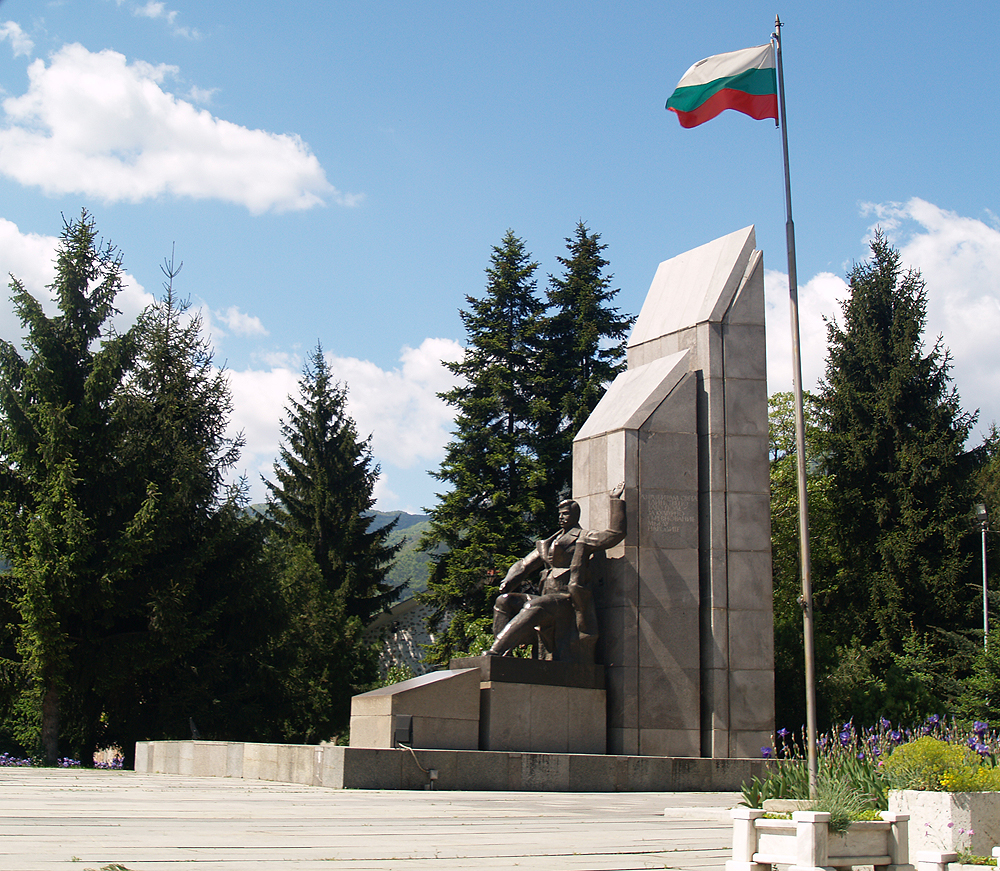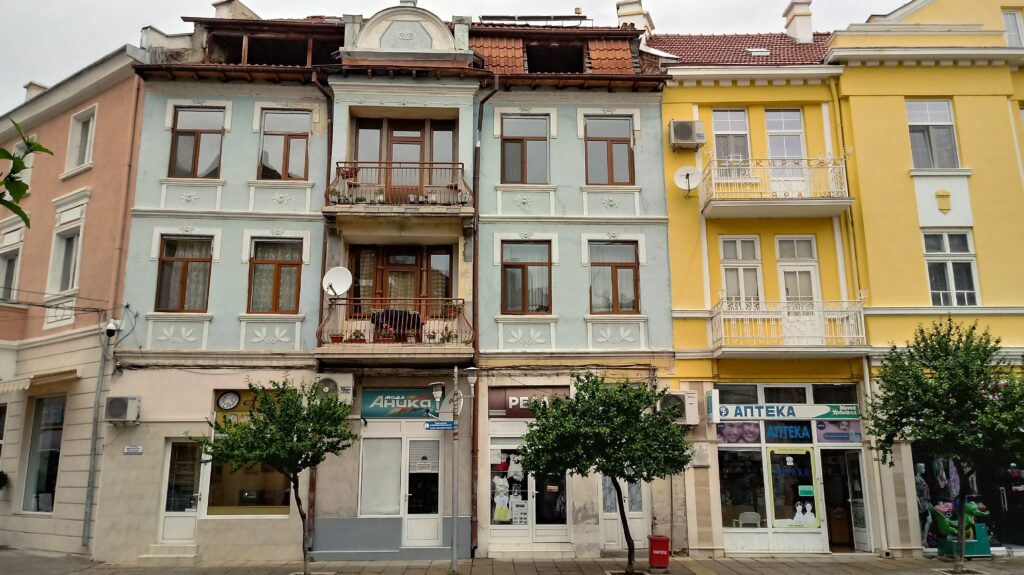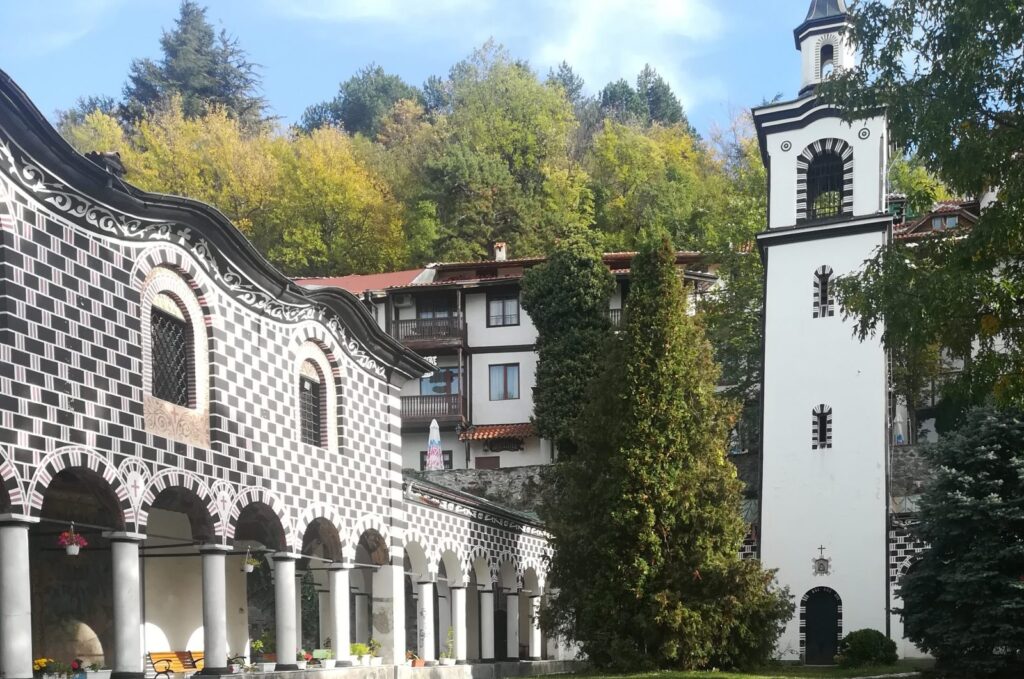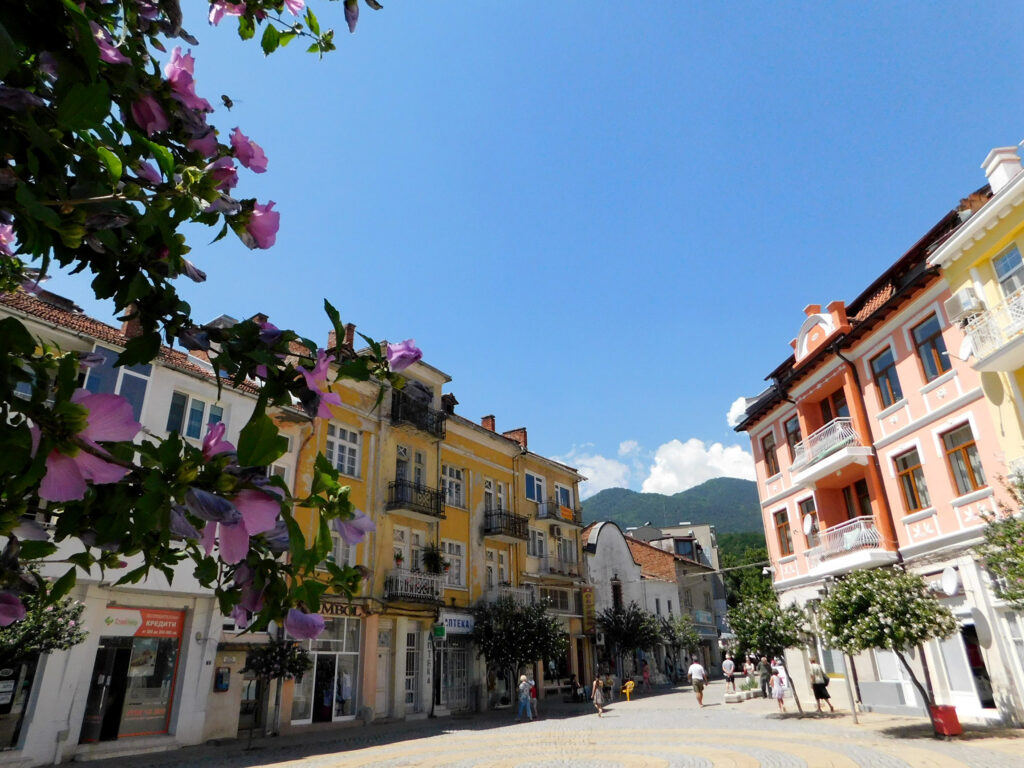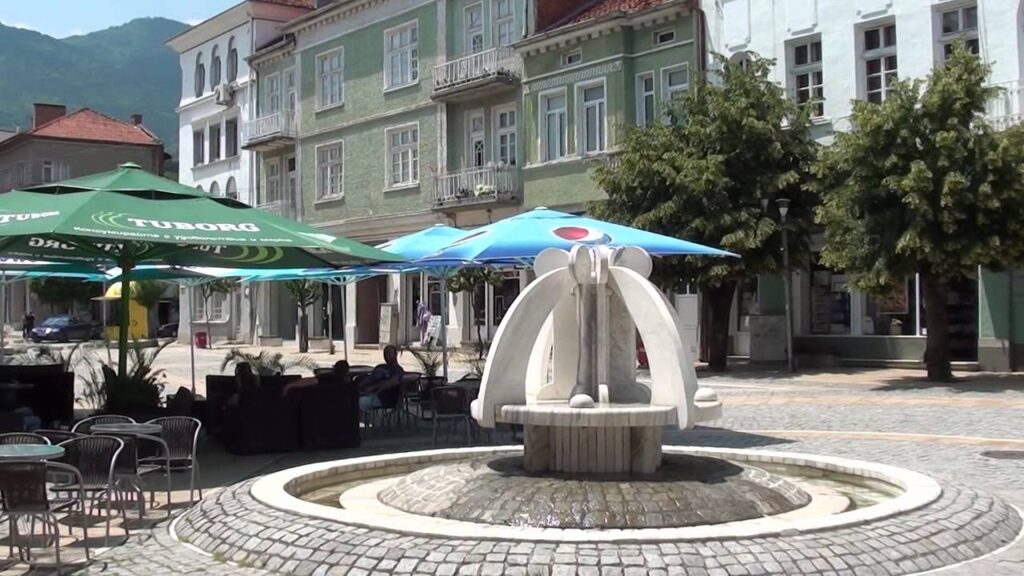Gotse Delchev is a town in Gotse Delchev Municipality in Blagoevgrad Province of Bulgaria.
In 1951, the town was renamed after the Bulgarian revolutionary hero Gotse Delchev. It had hitherto been called Nevrokop (in Bulgarian: Неврокоп, Nevrokop; in Greek: Άνω Νευροκόπι, Ano Nevrokopi; and in Turkish: Nevrokop).
Nearby are the remains of a walled city established by the Romans in the 2nd century AD. The town was a kaza in Syar sanjak of Selanik vilayet before the Balkan Wars.
Geography
Gotse Delchev is situated in a mountainous area, about 200 km (124 mi) from the capital Sofia and 97 km (60 mi) from the city of Blagoevgrad in the southern part of Blagoevgrad district. The town center is 545 m (1,788 ft) above sea level. The Gotse Delchev Hollow is characterized by a continental climate; rainfall occurs mainly during spring and autumn, and summers are hot and dry. Winter temperature inversions are possible.
Economy
Industry and trade
The municipality has been isolated from big industrial centers in Bulgaria due to its geographic location near the closed border with Greece for about sixty years, and the lack of natural resources, the long distances between Gotse Delchev and other bigger towns, and the narrow and poorly maintained roads have contributed to this as well. After the opening of the Ilinden–Exochi border crossing and improvement of the road system in the area, the economy of the municipality has changed. Light industries are well presented in the town of Gotse Delchev. Textile and shoe industries, zipper production, plastics processing, paper and wood processing, and tobacco growing and processing are major sources of income in the municipality. There are no big department stores, but a wide variety of smaller shops exist in the town.
Agriculture, forestry, and stock-breeding
The Mediterranean influence in the wide valley of the Mesta river is favorable for modern and productive agriculture. Tobacco was the most important crop in earlier years, representing a large part of the region’s agriculture; however, the worldwide decline in smoking and a change in the state policy of subsidies for tobacco production have caused tobacco farming to decrease. People also grow wheat, maize for grain, beans, sunflowers, potatoes, tomatoes, peppers, apples, grapes, strawberries, raspberries, blackberries, and other fruits.
Transportation and infrastructure
The only transportation available in the town is by automobile. Most of the streets are paved. Buses connect the town with Sofia, Blagoevgrad, and the villages in Gotse Delchev municipality, as well as Garmen and Hadzhidimovo municipalities. Multiple cellphone operators cover the town; there are also landline telephones, internet, and cable TV. Electricity and water supply utilities cover the whole town.
Tourism
Gotse Delchev does not have any major tourist attractions, although there are several hotels and restaurants in the town. It is surrounded by three mountain formations: Pirin, the Rhodope mountains, and Alibotush, offering scenic views. There is a historical museum in the center of the town. The village of Delchevo is of architectural interest, with old Bulgarian Renaissance houses; some of them are opened as guest-houses. The resort “Papazchair” on the road to Sandanski is open during all seasons, with opportunities for skiing. Gotse Delchev is near the ruins of the Roman town of Nicopolis ad Nestum and not far from the village of Kovachevitsa, a famous architectural reservation.
